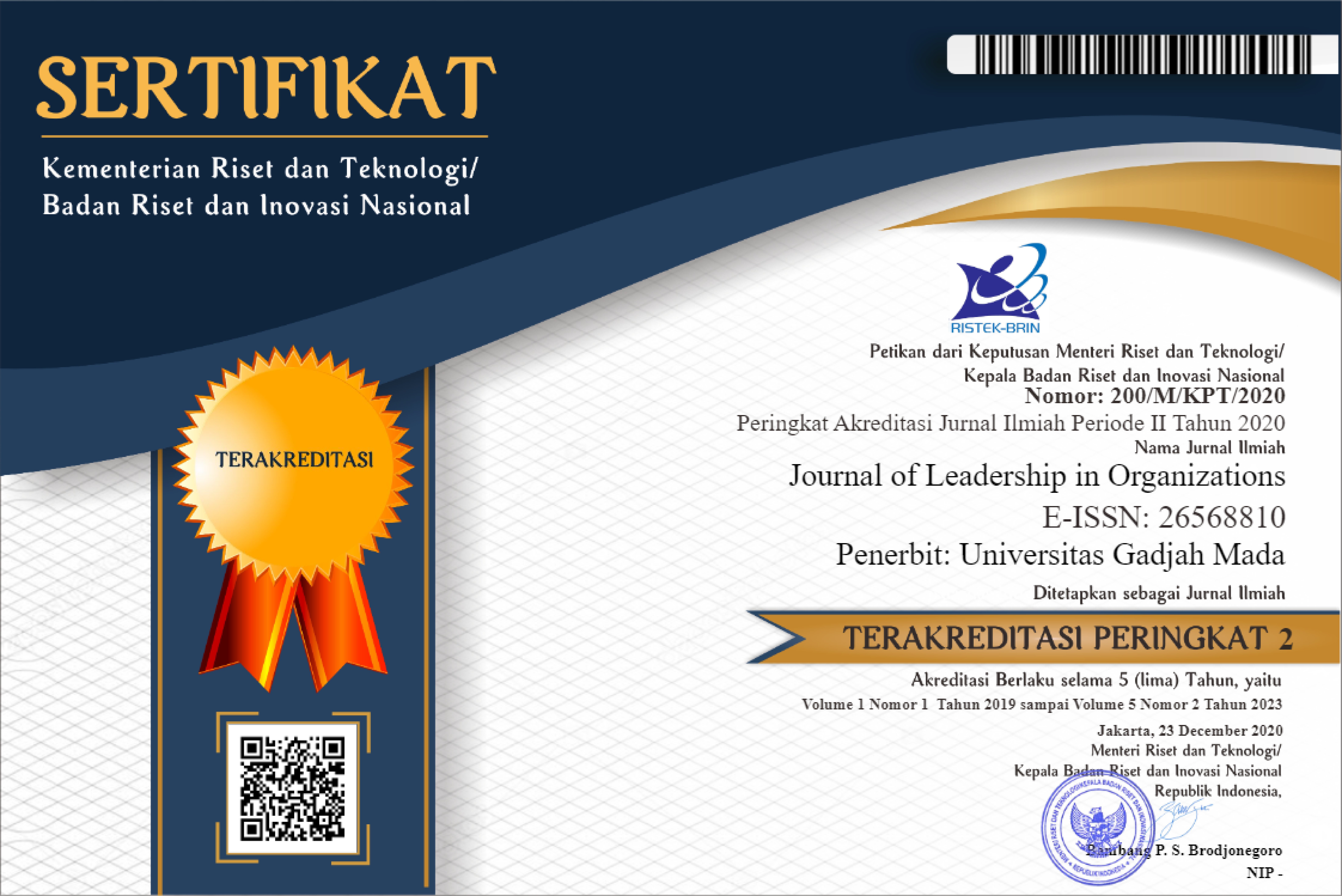EXPATRIATION AFTER THE TERROR ATTACK: A QUALITATIVE INQUIRY FROM HR PERSPECTIVE
Silvia Akter(1*), Shamsul Huq Bin Shahriar(2), Md. Abdul Momen(3), Nayeema Sultana(4)
(1) Assistant Professor, Department of Business Administration, East West University, Jahurul Islam City Gate, A/2 Jahurul Islam Ave, Dhaka, Bangladesh
(2) Senior Executive, Human Resource and Administration, American & Efird Bangladesh Ltd.
(3) Assistant Professor, Department of Business Administration, East West University, Jahurul Islam City Gate, A/2 Jahurul Islam Ave, Dhaka, Bangladesh
(4) Senior Lecturer, Department of Business Administration, East West University, Jahurul Islam City Gate, A/2 Jahurul Islam Ave, Dhaka, Bangladesh
(*) Corresponding Author
Abstract
Introduction and Main Objective: This study attempted to explain the anxieties from the insights of expatriates and their views related to international assignments in Bangladesh after the Holey Artisan attack in 2016, this study also discusses the immediate and current status of expatriation in Bangladesh. Background Problems: The host countries’ environment plays an important role in accomplishing any overseas assignment. Bangladesh with its ethnicity of warm hospitality has always been an ideal place for expatriates from both novel and similar cultures and environments. Conversely, the recent incidents of terror attacks, notably the major attack at ‘Holey Artisan Bakery’ in 2016 have changed many calculations. Research Method: This qualitative research is a combination of narrative situational analysis and longitudinal study. Primary data was collected through interviews. Findings/Results: Research findings revealed some aftermaths of the attack related to the actions taken by the authority of the state. And how this incident hampered the assignments and work-life balance of the expatriates. Novelty: This particular study contributes to the existing literature of international human resource management with the tools and technics of effective crisis management from the real-life experiences of the expatriates. Conclusion: This study suggests that this is high time for organizations to work on their people and culture management strategies to increase interfaith, intercultural, and multiracial harmony.
Keywords
Full Text:
PDF ARTICLEReferences
Aryee, S. and Stone, R.J. (1996), Work experiences, work adjustment and psychological well-being of expatriate employees in Hong Kong, International Journal of Human Resource Management, 7(1), 150-63.
BBC News. (2016a) Bangladesh siege: Twenty killed at Holey Artisan Bakery in Dhaka, Retrieved from https://www.bbc.com/news/world-asia-36692613
BBC News. (2016b) Bangladesh cafe siege: The victims, Retrieved from https://www.bbc.com/news/world-asia-36693968
Bdnews24.com, (2016) Terror-hit Holey Artisan Bakery handed over to property owner following a court order. Retrieved from http://bdnews24.com/bangladesh/2016/11/14/terror-hit-holey-artisan-bakery-handed-over-to-property-owner-following-a-court-order
Bender, S. and Fish, A.J. (2000), The transfer of knowledge and the retention of expertise: the ongoing need for global assignments, Journal of Knowledge Management, 4(2),125-37.
Bhanugopan, R. and Fish, A. (2006), An empirical investigation of job burnout among expatriates, Personnel Review, Vol. 35 Issue: 4, pp. 449-468
Bhatti, M., Battour, M., Ismail, A. and Sundram, V. (2014), Effects of personality traits (big five) on expatriates adjustment and job performance, Equality, Diversity and Inclusion: An International Journal, 33(1),73-96
Billah, M. (2017) Holey Artisan reopens at a new Gulshan location. Bdnews24.Com. Retrieved from http://bdnews24.com/bangladesh/2017/01/10/holey-artisan-reopens-at-a-new-gulshan-location,
Birdseye, M.G. (1990), Job satisfaction and life satisfaction factors relating to intent to turnover for American expatriates: an empirical study, an unpublished dissertation, University of Alabama, Tuscaloosa, AL.
Black, J.S. and Gregersen, H.B. (2000), High impact training: forging leaders for the global frontier, Human Resource Management, 39(2-3),173-84.
Black, J.S. and Gregersen, H.B. (1999), The right way to manage expats, Harvard Business Review, March/April, 52-62.
Black, J.S., Gregersen, H. B., Mendenhall M.E. and Stroh L.K., (1999), Globalizing People through International Assignments, Addison-Wesley/Longman, New York, NY.
Bonache, J. and Brewster, C. (2001), Knowledge transfer and the management of expatriation, Thunderbird International Business Review, 43(1),145-68,
Bonache, J. and Fernandez, Z. (1997), Expatriate compensation and its link to the subsidiary strategic role: a theoretical analysis, International Journal of Human Resource Management, 8(4), 457-75
Brewster, C. and Harris, H. (1999), The coffee machine system: how international selection really works”, International Journal of Human Resource Management, 10 (3), 488-500.
Caligiuri, P.M. (2000), Selecting expatriates for personality characteristics: a moderating effect of personality on the relationship between host national contact and cross-cultural adjustment, Management International Review, 40 (1), 61-80.
Caligiuri, P.M. and Cascio, W. (1998), Can we send her there? Maximizing the success of western women on global assignments, Journal of World Business, 33(4), 394-416.
Cohen-Charash, Y. and Spector, P.E. (2001), The role of justice in organizations: a meta-analysis, Organizational Behavior and Human Decision Processes, 86(2),278-324,
Dhaka Tribune (2016a). Holey Artisan Bakery to become a family home. Retrieved from http://www.dhakatribune.com/bangladesh/2016/11/15/holy-artisan-bakery-become-family-home/
Dhaka Tribune, (2016b). NSU acting pro-VC, 2 others arrested. [online] Available at: https://www.dhakatribune.com/bangladesh/2016/07/16/nsu-acting-pro-vc-2-others-arrested
Downes, M. and Thomas, A. (2000), Knowledge transfer through expatriation: the U-curve approach to overseas staffing, Journal of Managerial Issues, 12(2),131-49
Forstenlechner, I. (2010) "Exploring expatriates' behavioural reaction to institutional injustice on host country level", Personnel Review, 9(2), 178-194,
Gummesson, E. (2000), Qualitative Methods in Management Research, Sage, Thousand Oaks, CA.,
Gupta, A. and Govindarajan, V. (2000), Knowledge flows within multinational corporations, Strategic Management Journal, 21, 473-96.
Hechanova, R., Beehr, T. A. and Christiansen, N.D. (2003), Antecedents and consequences of employees’ adjustment to overseas assignment: a meta-analytic review, Applied Psychology, 52( 2), 213-236
Hendricks, V. M., Blanken, P. and Adriaans, N. (1992) Snowball Sampling: A Pilot Study on Cocaine Use, Rotterdam: IVO
Herman, J. and Tetrick, L. (2009), Problem-focused versus emotion-focused coping strategies and repatriation adjustment, Human Resource Management, 48,69-88.
Joshi, P.M., Caligiuri, A. and Lazarove, M. (1999), Factors influencing the adjustment of women on global assignments, International Journal of Human Resource Management,10(40),163-179
Khan, S. A. (2016) Bangladesh's 7/16. The Daily Star. Retrieved from http://www.thedailystar.net/city/dhaka-attack-bangladeshs-716-1249255
Lee, L.-Y. and Croker, R. (2006), A contingency model to promote the effectiveness of expatriate training, Industrial Management & Data Systems,106(8), 1187-1205.
Lincoln, E.G. and Guba, Y.S. (1985), Competing paradigms in qualitative research, in Denzin, N. and Lincoln, Y. (Eds), Handbook of Qualitative Research, Sage, Thousand Oaks, CA,
Marshal, C. and, Rossman, G.B., (2006) Designing Qualitative Research, Sage, Thousand Oaks, CA.
Mayerhofer, H., Hartmann, L.C., Michelitsch-Riedl, G. and Kollinger I., (2004), Flexpatriate assignments: a neglected issue in global staffing, International Journal of Human Resource Management, 15,1371-89
McNulty, Y. (2016), Why expatriate compensation will change how we think about global talent management, in Guo, Y., Dowling, P. Hussain, R. (Eds), Global Talent Management and Staffing in MNEs, International Business & Management, 32, Emerald, Bingley, 123-148
McNulty, Y. and Vance, C. M. (2017), Dynamic global careers: a new conceptualization of expatriate career paths, Personnel Review, 46(2), 205-221
Minbaeva,D. B., and Michailova, S. (2004), Knowledge transfer and expatriation in multinational corporations: The role of disseminative capacity, Employee Relations, 26(6),663-679
Moore, N. (2000), How to Do Research, 3rd ed., Library Association, London,
Peltokorpi, V. and Froese, F.J. (2009), Organizational expatriates and self-initiated expatriates: who adjusts better to work and life in Japan?, International Journal of Human Resource Management, 20(5), 1096-112.
Richardson, J. (2006), Self directed expatriation: family matters, Personnel Review, 35(4), 469-486,
Riusala, K. and Suutari, V. (2000), Expatriation and careers: perspectives of expatriates and spouses, Career Development International, 5(2),81-90
Rubin, H. J. and Rubin, I. S. (2005). Qualitative interviewing: The art of hearing data (2nd ed.). Thousand Oaks, CA: Sage.
Sarwar, D. (2018). Nearly 86,000 foreigners legally working in Bangladesh. Bangla Tribune. Retrieved from https://en.banglatribune.com/national/news/17415/Nearly-86-000-foreigners-legally-working-in
Seidman, I. (2006), Interviewing as qualitative research: A guide for researchers in education and the social sciences (3rd ed.). New York: Teachers College Press
Shaffer, M.A. and Harrison, D.A., (1998), Expatriates’ psychological withdrawal from international assignments: work, nonwork, and family influences, Personnel Psychology, 51(1),87-118,
Silverman, D., (1999) “Doing Qualitative Research: A Practical Handbook”, Sage, London.
The Daily Star. (2016a). Dhaka attack: 20 hostages killed Friday night, says ISPR. Retrieved from http://www.thedailystar.net/city/gulshan-attack-ispr-briefing-1230pm-1249231,
The Daily Star. (2016b). LIVE: Gulshan hostage crisis. Retrieved from http://www.thedailystar.net/country/live-gulshan-hostage-crisis-1248955
The Daily Star. (2016c). Nationalities of Holey Artisan victims disclosed. Retrieved from http://www.thedailystar.net/dhaka-attack/nationalities-holey-artisan-victims-disclosed-1249321
The Daily Star, (2016d). NSU teacher, 2 others arrested, Police say they rented out flat to Gulshan attackers, held back tenants' information. [online] Available at: https://www.thedailystar.net/frontpage/nsu-teacher-2-others-arrested-1255015
The Daily Star, (2016e). ‘Storm 26’, a plan well executed. [online] Available at: https://www.thedailystar.net/frontpage/storm-26-plan-well-executed-1260136
Tipu, M., Rahman, M., Alif, A. and Rabbi, A., 2020. 7 to hang for Holey Artisan terror attack. Dhaka Tribune, [online] Available at: https://www.dhakatribune.com/bangladesh/court/2019/11/28/7-to-hang-for-holey-artisan-terror-attack
Welch, D.E. (2003), Globalisation of staff movements: beyond cultural adjustment, Management International Review, 43(2), 149
Article Metrics
Refbacks
- There are currently no refbacks.
Copyright (c) 2021 Journal of Leadership in Organizations

This work is licensed under a Creative Commons Attribution-ShareAlike 4.0 International License.
| Journal of Leadership in Organizations |
| Journal of Leadership in Organizations (JLO), with registered number ISSN 2656-8829 (Print) and ISSN 2656-8810 (Online), is published by the Center for Leadership Studies, Department of Management, Faculty of Economics and Business, Universitas Gadjah Mada. The content of this website is licensed under a Creative Commons Attribution-ShareAlike 4.0 International License |
| © 2019 Journal of Leadership in Organizations | |





_logo2.png)


.png)




